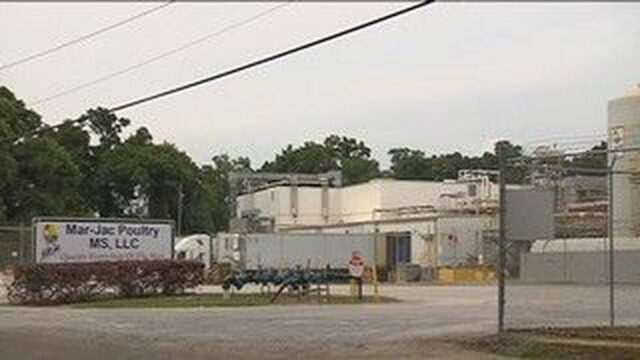The U.S. Department of Labor has reached a settlement agreement with a Hattiesburg poultry processing plant that requires the company to pay $164,814 in fines and implement enhanced safety measures to protect their employees from well-known machine hazards.
The agreement follows an investigation by the department’s Occupational Safety and Health Administration into the failure by Gainesville-based Mar-Jac Poultry to use required safety procedures that would have kept a teenaged worker from being fatally caught in a machine as they cleaned it in July 2023.
In addition to abating all violations cited by OSHA, Mar-Jac must implement the following enhancements, according to an OSHA news release:
- Add another properly trained supervisor to the sanitation shift.
- Provide workers exposed to lockout/tagout and machine guarding hazards with updated training.
- Require the plant’s manager and safety director to complete OSHA’s 30-hour general industry training and plant supervisors to complete OSHA’s 10-hour training.
- Institute a system for assigning, identifying and issuing locks to authorized employees performing lockout/tagout functions and update programs and training to reflect this requirement.
- Conduct a risk and hazard assessment to evaluate the safety exposures and hazards associated with current lockout/tagout procedures for the sanitation shift. The assessment must include a review of any incidents, including near misses, injuries and unexpected start-ups or malfunctions of machinery.
- Perform monthly lockout/tagout safety audits for the sanitation shift for one year and provide proof to OSHA, including what steps the employer is taking to reduce hazards in response to the audits.
“Tragically, a teenage boy died needlessly before Mar-Jac Poultry took required steps to protect its workers,” said OSHA Regional Administrator Kurt Petermeyer in Atlanta. “This settlement demands the company commit to a safer workplace environment and take tangible actions to protect their employees from well-known hazards. Enhanced supervision and increased training can go a long way toward minimizing risks faced by workers in meat processing facilities.”
Mar-Jac previously denied any wrongdoing in the death of Perez. While admitting Perez was killed at the facility, the company denied any liability in connection to his death.
Perez’ family filed suit against Mar-Jac and Onin Staffing earlier this year. It alleges that Perez was killed because Mar-Jac ignored safety regulations in not turning off machinery during sanitation. The suit also claims Onin Staffing was negligent in illegally assigning the 16-year-old to work at the plant.
OSHA issued its citation against Mar-Jac earlier this year.


